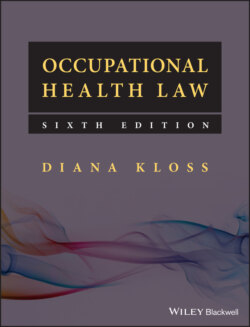Читать книгу Occupational Health Law - Diana Kloss - Страница 21
International Labour Organization
ОглавлениеThe International Labour Organization (ILO) was founded in 1919 by those nations who had been the victors in World War I, to bring together representatives of employers’ and workers’ organisations and also of governments of participating states. It holds international conferences annually in Geneva and acts as a focus for those who strive to raise standards of protection for workers, not merely in the field of health and safety, but in industrial relations in general. Most countries belong to the ILO, which is the oldest and most experienced international body concerned with the establishment of international labour standards.
The ILO adopts Conventions and Recommendations. Ratification of a Convention amounts to an undertaking that its provisions will be given legally binding force by a legislative enactment. Even then, a government may denounce a Convention at a later date, as the British government has done with laws preventing women workers from being employed at unsocial hours (Chapter 8). A Recommendation does not have to be ratified, but adoption by a government signifies that the government will in the future be guided by the Recommendation if and when it decides to act. The ILO has produced a Convention and Recommendation relating to the provision of occupational health services (Chapter 1). In 2003 the ILO adopted a Global Strategy on Occupational Safety and Health.
